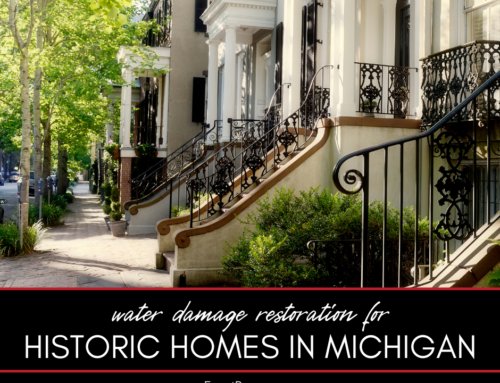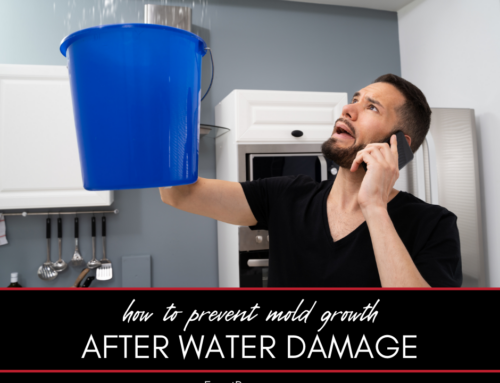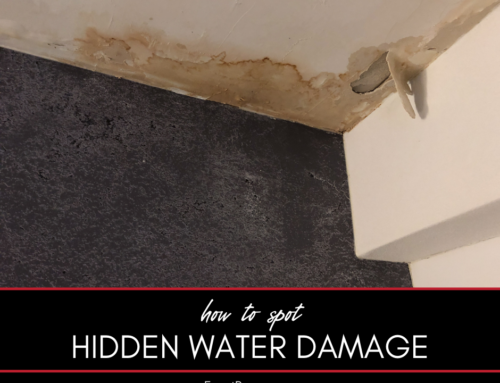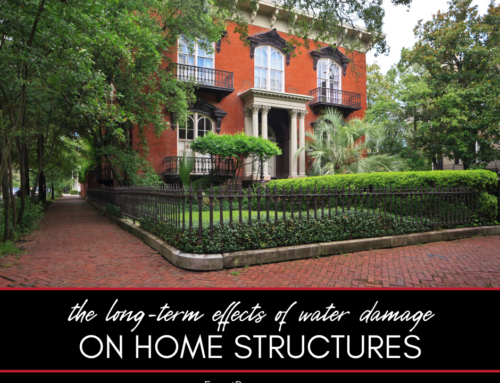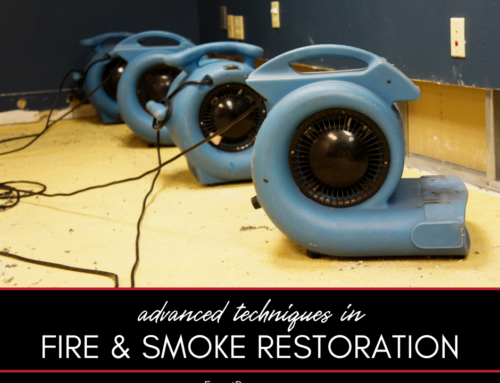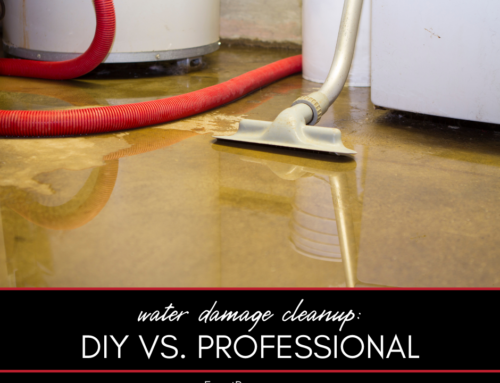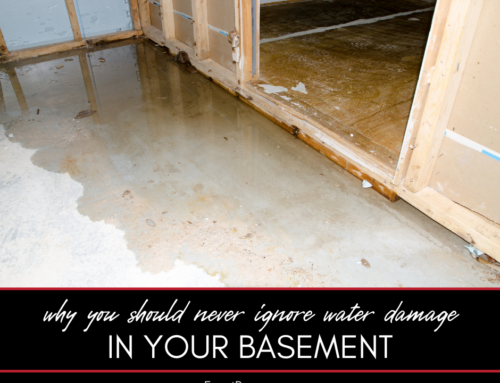Water damage, the unexpected intruder, can turn a peaceful home into a chaotic mess in no time. Whether you’re in Jackson, Ann Arbor, or anywhere in between, knowing the common culprits of water damage and how to tackle them can save you heaps of stress, time, and money.
The Top Causes of Water Damage and How to Mitigate Them
We’ve all heard tales of basements turning into swimming pools or ceilings dripping after a heavy storm. But have you ever wondered about the root causes of these watery woes? This guide is here to enlighten you. This guide covers:
- Natural disasters and their impact
- Broken pipes and leaky faucets
- Malfunctioning appliances
- Blocked drains and gutters
- Poor property maintenance
Here’s a closer look at each.
Natural Disasters and Their Impact
The whims of Mother Nature can be both awe-inspiring and devastating:
- Magnitude of Disasters: Natural calamities like hurricanes, tsunamis, and earthquakes can cause massive destruction within minutes. Their unpredictability makes them especially dangerous.
- Structural Damage: Floods, tornadoes, and high winds can topple buildings, uproot trees, and cause extensive property damage.
- Long-term Impacts: Apart from immediate harm, natural disasters can lead to long-term issues like soil erosion, water contamination, and power outages.
- Economic Consequences: These events can significantly impact a region’s economy, from destroying infrastructure to interrupting businesses.
- Preventative Measures: While you can’t prevent these disasters, you can reduce their impact. Installing sump pumps helps keep basements dry during heavy rainfalls. Regular maintenance of gutters prevents water accumulation and potential roof damage. And reinforcing your home’s structure, like with hurricane ties or seismic retrofitting, can provide added security during storms or earthquakes.
Broken Pipes and Leaky Faucets
Plumbing issues are a common cause of indoor water damage:
- Causes: Apart from freezing temperatures, pipes can break due to corrosion, high pressure, or external damage (like during construction).
- Potential Damage: A burst pipe can flood your home rapidly, damaging furniture, electronics, and structural elements.
- Spotting Issues: Look for signs like reduced water pressure, discolored water, or damp spots on walls.
- Preventative Action: Regular inspections, especially duriAdd Newng winter, can detect vulnerabilities. Insulate pipes in colder regions to prevent freezing.
Malfunctioning Appliances
Even the most trustworthy appliances can sometimes betray us:
- Common Culprits: Dishwashers, washing machines, and water heaters are notorious for causing water damage, either due to malfunction or wear over time.
- Indicators: Strange noises, leaks, or decreased efficiency can be early signs of an issue.
- Consequences: An overflowing washing machine or a leaking dishwasher can quickly flood a kitchen or utility room, damaging floors and cabinets.
- Prevention: Regularly servicing appliances, following manufacturer guidelines, and being vigilant about replacing older units can save both money and hassle in the long run.
Blocked Drains and Gutters
The unnoticed culprits often cause big issues:
- The Domino Effect: A blocked drain can lead to water backing up, potentially causing overflows in sinks, tubs, or toilets.
- Foundation Concerns: Gutters blocked with leaves or debris can cause water to pool around a home’s foundation, leading to potential cracks and seepage.
- Routine Maintenance: Seasonal cleaning, especially during fall when leaves are plentiful, is crucial. Install gutter guards to reduce debris accumulation.
Poor Property Maintenance
Neglect today can lead to extensive damage tomorrow:
- Weak Spots: Over time, wear and tear can create vulnerabilities in your property, from a deteriorating roof to cracks in the foundation.
- Potential Damage: Water can seep through these weaknesses, leading to mold growth, structural damage, and other issues.
- Economic Implications: Minor repairs today can prevent major expenses in the future.
- Scheduled Checks: Annual inspections by professionals can highlight areas of concern, allowing for timely repairs and ensuring your home’s longevity.
FAQ About Water Damage Causes and Solutions
Here are some frequently asked questions about the top causes of water damage and how to mitigate them. If you don’t see the answers you’re looking for here, please call our office. We’re here to help.
How Can I Prepare for a Predicted Flood?
Elevate appliances and furniture, install sandbags, ensure sump pumps are working, and keep an eye on local warnings.
Are There Any Alarms for Detecting Water Leaks?
Yes, there are water leak detection systems that alert you if they detect moisture, helping prevent major damage.
How Often Should I Inspect My Appliances for Leaks?
Inspect your appliances at least twice a year. However, if they’re older, consider checking them more frequently.
Can Insurance Cover Water Damage?
Depending on your policy, insurance might cover water damage. Always check with your provider about the specifics.
What’s the First Thing I Should Do After Noticing Water Damage?
Turn off the main water supply and electricity, then call a disaster remediation specialist.
By staying vigilant and keeping up with maintenance, you can minimize the chances of water damage in your home. After all, prevention is better than cure. And if you ever need professional help, remember that your local disaster remediation expert is just a call away.
Do You Need a Disaster Remediation Expert in Washtenaw County or Jackson County?
If your home has already been damaged, we can help. Check out our services and call Exact Recon for your free disaster remediation quote today. We offer:



